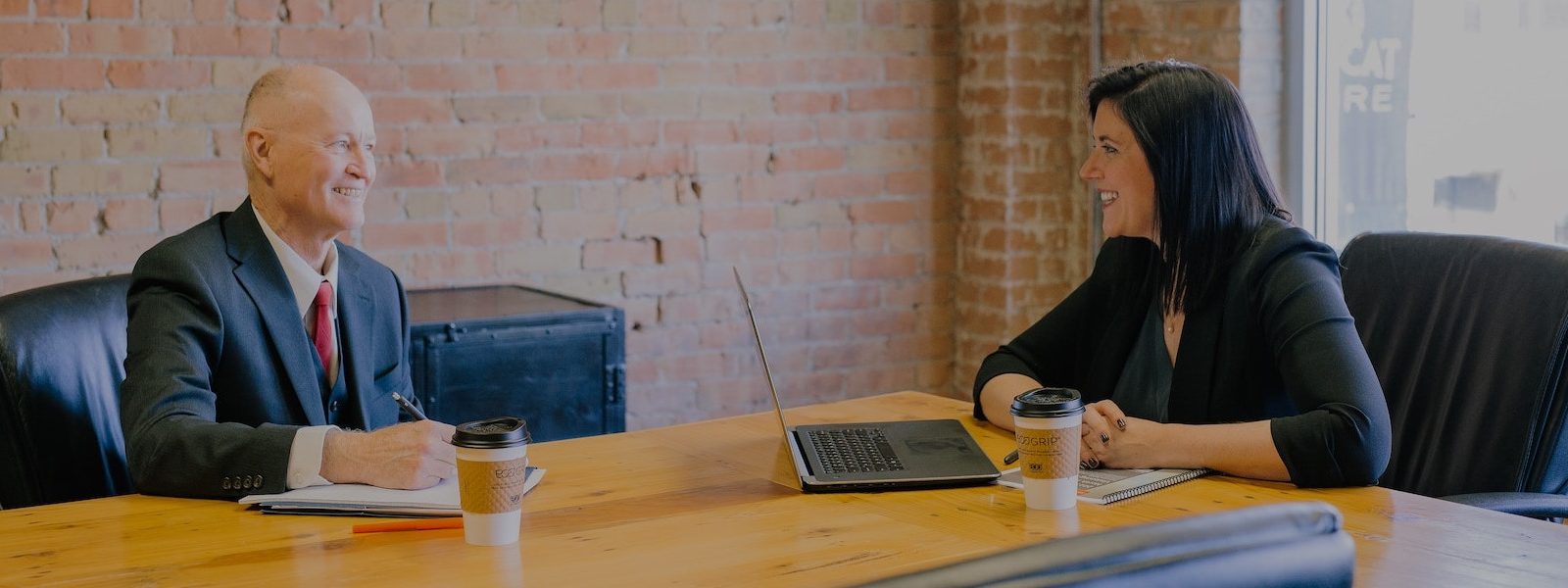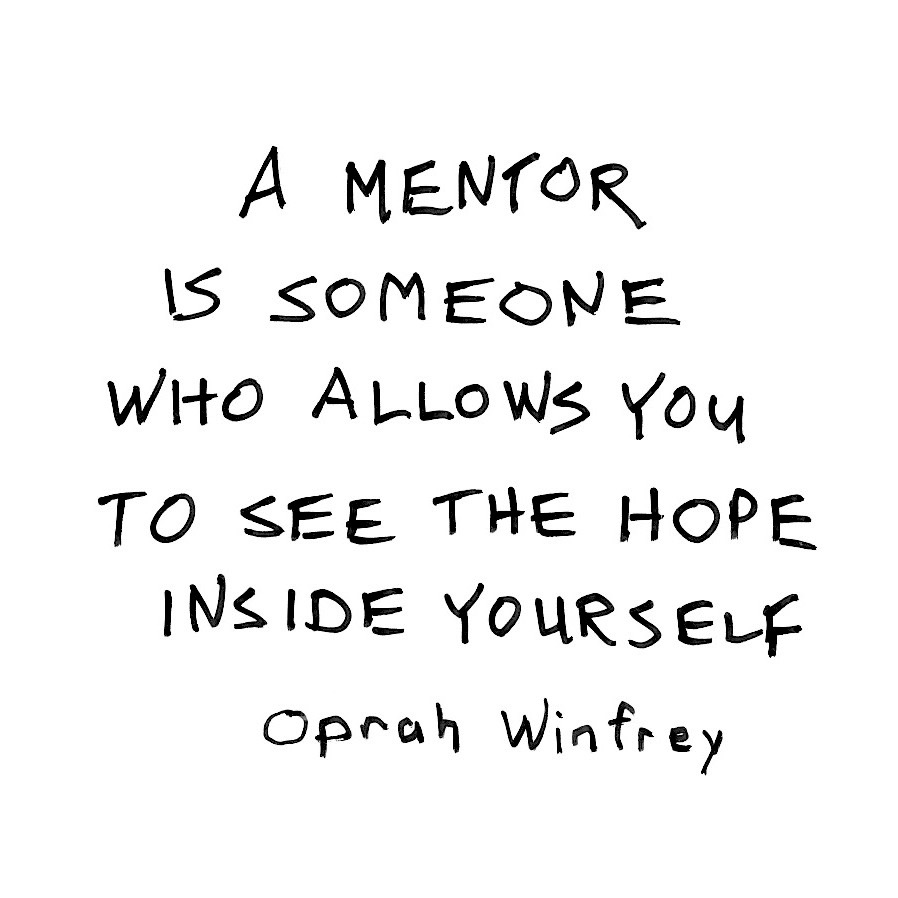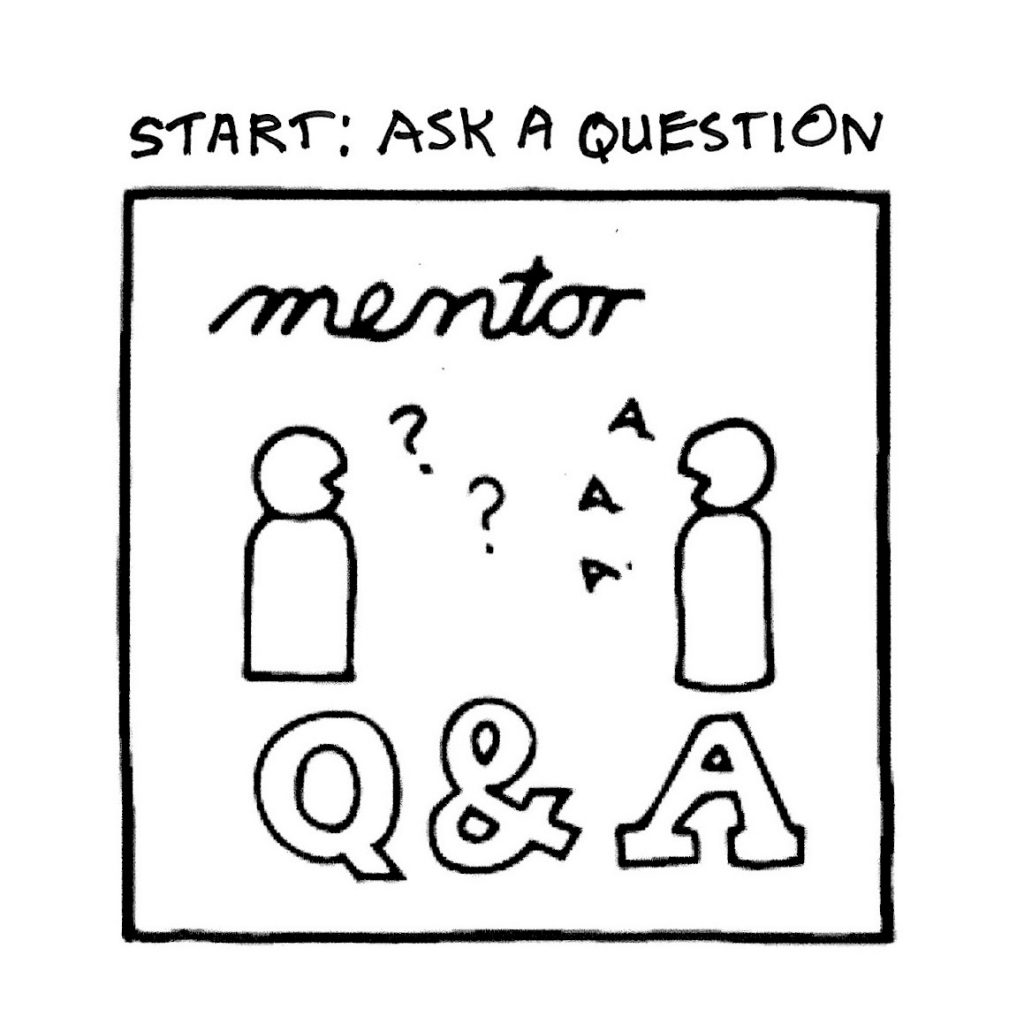
Mentorship and the idea of working with one seem synonymous with success.
This ideal relationship is elusive for many of us due to overthinking how to find one.
Have you ever wanted the guidance of a mentor, but did not know where to start? Or how to approach someone? You might have assumed people are chosen while others are not.
Maybe you feel left out of this important right of passage. Yet, you are not alone in this feeling. Over 80 percent of people interviewed for my book Activate Your Agile Career confessed they had no official mentor throughout their career.
You may wonder about the executive advocate, missing in action for most of us. Picture the well-connected senior leader, approximately ten to fifteen years older (and wiser), meeting with you frequently to ensure workplace success. And to provide valuable introductions.
The Merriam-Webster dictionary definition of mentor is: a trusted counselor or guide.
Mentor Relationships of Famous Leaders
Let’s take a look at some famous people who benefitted from mentorship offered by other successful people.
- Bill Campbell (the most famous mentor and coach in Silicon Valley) mentored Steve Jobs
- Barbara Walter mentored Oprah Winfrey
- Warren Buffet mentored Bill Gates

These long-term relationships were personal as well as professional. And, an accumulation of conversations can develop into coaching relationships.
According to Management Mentors, “A mentor may coach, but a coach is not a mentor. Mentoring is relational, while coaching is functional.” If you are curious to learn about the full spectrum of coaches, read What is a Career Coach and Who Needs One?
Take Ownership of Your Mentor Experiences
It may feel daunting to view the examples of famous people, yet they are only here to demonstrate that even the most successful people see value in guidance.
There are many definitions and numerous quotes about mentoring, yet none of this knowledge will help unless you can gain guidance on your own terms.
Rather than yearn for the idealized view of a this helpful guide, why not take ownership of your personal experience?
The definition expands beyond the senior leader advocate, and includes a vast assortment of friends, colleagues, and trusted advisors.
The limited perception of a traditional mentor requires a reboot. In addition, being authentic to who you are will attract your tribe of helpers.
According to Mark J. Carter, a mentorship program designer, it’s time to demystify this elusive experience. His YouTube interview, 8 Unedited Minutes with Andy Crestodina highlights a few actionable steps for finding a mentor. Andy also shares thoughts about how to be a mentor.
As a marketing content thought leader, Andy held office hours every week for years. For one hour each week, he answered questions and had conversations in person.
Mentor Tips
Here is what I learned from listening to the interview:

- Find someone who has knowledge helpful to your success (industry, technique, connections, etc.). Andy’s expertise is content marketing.
- The experience starts with one question and may develop over time with more questions.
- There is no need to formalize the relationship (weekly, monthly, etc.). Your curiosity about how to accomplish something is enough.
- Consider it situational. As in getting feedback to one specific question. I once reserved time in Andy’s office to get feedback on book publishing and refinement to my career agility model for my book.
- Come back for more. Learn more. Succeed. One woman reserved office hours again and again. She came in with a plan and obtained advice and reactions from Andy. He felt committed to her continued success, as she shared her progress with him.
- Everyone can learn from being a mentor. When you teach, you learn.
So, how do you get started?
How to Get Started
There’s no need to complicate the experience. You can get advice via people you admire, your peers, and trusted friends. In fact, everyone can be a source of knowledge, regardless of their age.
The good news is there are a number of supportive people already in your orbit. The only requirement is they have knowledge in an area that will benefit you.
And the next time someone asks you a question you are uniquely qualified to answer, know this is an opportunity to provide short-term or long-term guidance.
The outcomes of a mentor relationship are varied. For example, some of the conversations will result in new business, while others are fleeting nuggets of just-in-time wisdom.
You never know where the conversations will take you. As Andy says, just ask.
Related posts:
80% of Professionals Lack This for Career Growth
If you are interested in the future of work, career development, personal branding, workforce trends/ideas, agility, or how to cultivate happy profitable employees, subscribe to Marti’s 52 Ideas. For more details on career agility, check it out here.
You can also check out the best-selling book on Amazon, Activate Your Agile Career: How Responding to Change Will Inspire Your Life’s Work.
